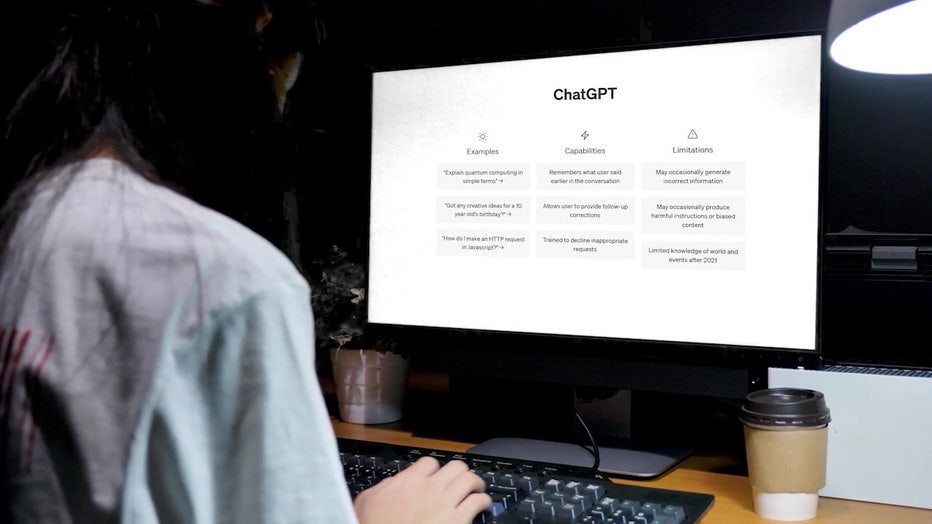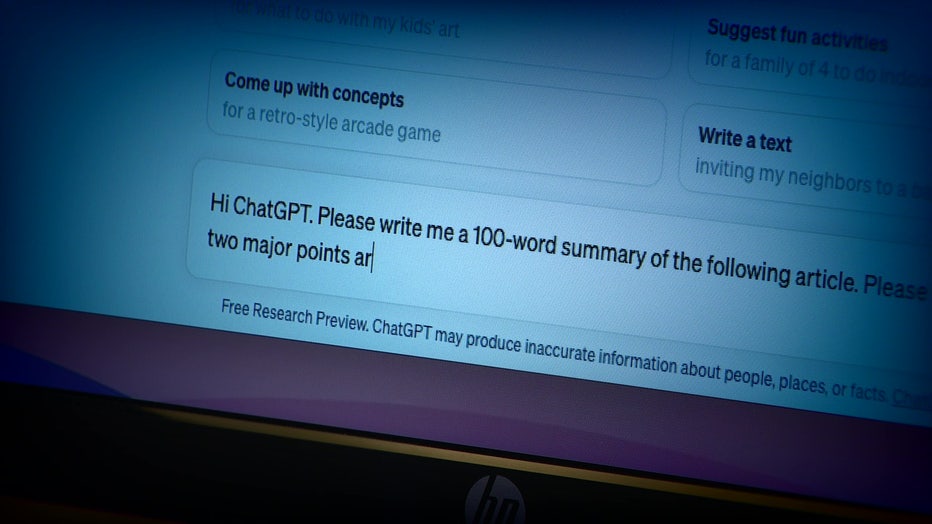USF linguistics professor says AI forcing educators to create more hands-on, interactive assignments
TAMPA, Fla. - A linguistics professor in Tampa has used results from his study on artificial intelligence to influence how he creates assignments for his students.
University of South Florida professor Matt Kessler teaches mostly masters and doctoral level students as well as some undergraduate classes.
"I think a lot of the students are actually quite open about if you ask them point-blank, do you use these tools. They’ll kind of look around at each other for a minute, and then they’ll go yeah we do," said Kessler, an assistant professor of applied linguistics.
READ: Chatbots can now talk, but experts warn they may be listening too
He said it’s very easy for anyone to use AI tools like ChatGPT to generate writing summaries.
"So I prompted it to give me a 100-word summary of the following article, what the two major points are that the author discusses. I gave it the text. Within seconds, it produces this," said Kessler, during a demonstration. "If you were to read the article and then compare it to the summary, I think you would find that it’s pretty strong, and it does cover the two main points."

Students are using AI to help with assignments.
Kessler recently finished a study taking the same concept to top experts in his field, challenging them to spot AI in writing by giving them four randomly produced summaries of articles that were human-generated and AI-generated.
"We had 72 top applied linguistics in the study, none of them got all four correct that they were given. So the average identification rate was about 39 percent. In most cases they’re actually better off flipping a coin judging whether or not it was human produced or produced by AI," explained Kessler. "That tells us a lot I think yeah. I mean, AI is getting incredible. It’s especially really proficient at some of these shorter genres like abstracts for instance."
READ: National Security Agency launching artificial intelligence security center
When it comes to education, Kessler said AI forces educators to change what they are doing to continue to drive student learning.
"I used to give students at the undergraduate level an assignment where they would read some short research articles, synthesize them, the key points. But from this study we kind of picked up that AI can do this really fast, right? People can try it at home," said Kessler. "So, we’ve removed those from the syllabus, and we’ve replaced them with more interactive, hands-on assignments that students are not going to be able to do these things with."
One of the biggest questions remains what are the ethics of using AI, whether in education or other fields.

AI can generate pieces of writing instantly.
"As part of the study as well, we polled the top editors in our field in linguistics and applied linguistics, what do they feel are the ethical uses of AI, if any. Interestingly, a large chunk of them said it was not ethical under any circumstance," said Kessler. "But there’s a really large chunk as well who says we’re not going back. It’s not like these tech companies are going to say you know well let’s shut it down. So, I think we kind of have to learn to live with it."
Some USF students said they like using AI tools like ChatGPT.
READ: UPS using AI to prevent 'porch pirates' from stealing packages
"Yeah, I think it’s great. I think it’s helpful. It really gives me all the things I need when I’m searching for things on the internet," said Ty Childs, a freshman at USF.
Others said they don’t care for it.
"I don’t feel the need to. Some people use it for assignments. Some people use it for scheduling. Some people use it for, they can’t come up with ideas," said Mustafa El Sayid, a junior at USF.

Professors are trying to figure out how to improve critical thinking skills.
Some students said it can depend on how it’s used.
"I mean it may help them to kind of think out of the box, but for them to rely on it might not be so good," said JJ Vedrine, a USF freshman.
Kessler said educators need to have a conversation sooner rather than later about how students use it.
"They’re already using it in really unique and interesting ways for educational purposes, a lot of which I think instructors are not aware of," shared Kessler.
He said it’s a tool and a fast one, but it won’t replace the need for critical thinking.

